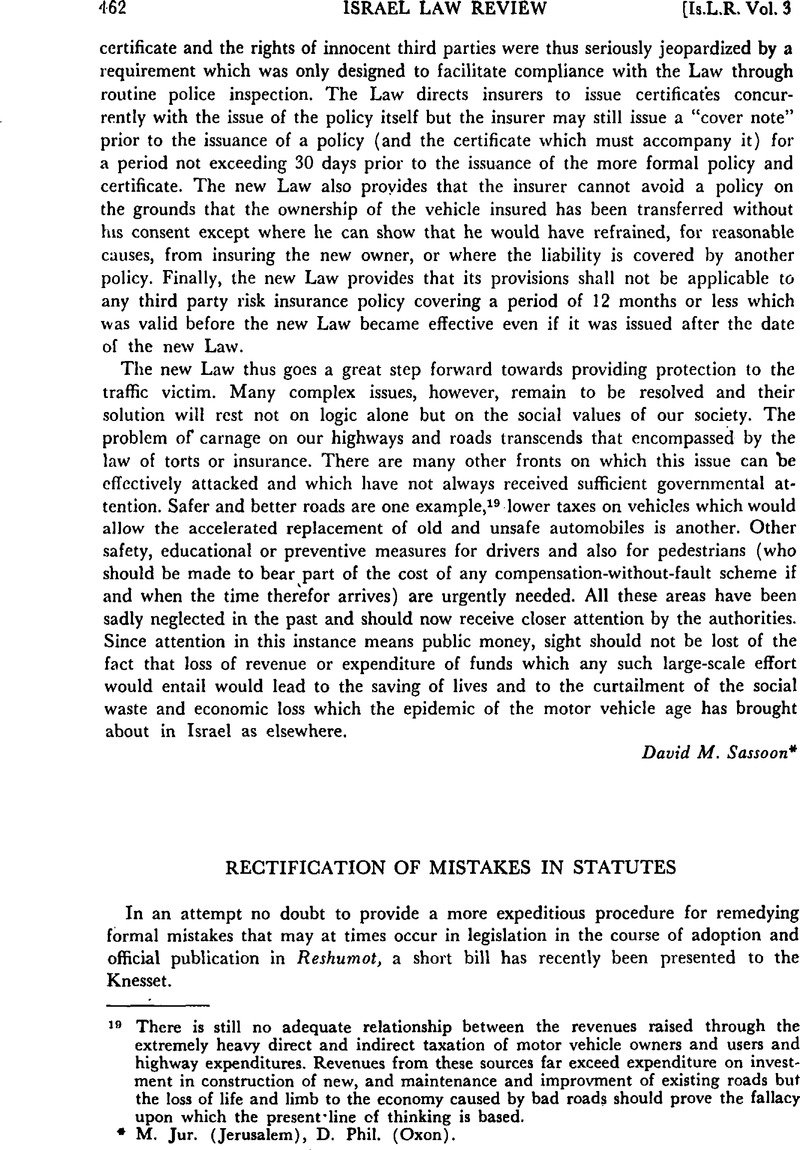No CrossRef data available.
Published online by Cambridge University Press: 12 February 2016

1 1 L.S.I. 7.
2 No official translation as yet exists of the bill. The English version in the text is as literal as may be so as to avoid any gloss on the original Hebrew.
3 3 L.S.I. 3.
4 The description of the procedure in Zidon, A., Beth Hanivcharim [The Knesset] (1964) [in Hebrew] 211–12 appears to be incomplete.Google Scholar
5 See Zidon, op. cit. 211.
6 The term used is identical with that in the proposed new sec. 10 B.
7 An instance of the last is to be found in the Hebrew of sec. 60 of the new version of the Civil Wrongs Ordinance published by virtue of sec. 16 of the Law and Administration Ordinance, 1948, where the Hebrew for “of unsuccessful proceedings” has been unnecessarily repeated.
8 Salomon v. Salomon [1897] A.C. 22, 38.
9 Stone, J., Legal System and Lawyers' Reasonings (1964) 352.Google Scholar
10 I am indebted to Mr. A. M. Apelbom, the Editor, for drawing my attention to this case.
11 Cf. the U.K. Consolidation of Enactments (Procedure) Act, 1949, which is more “protective” and requires public notification to enable representations to be made, satisfaction that even corrections and minor improvements which are carefully defined do not change existing law in a manner which ought to be separately dealt with by Parliament and that the final bill must still be duly enacted.